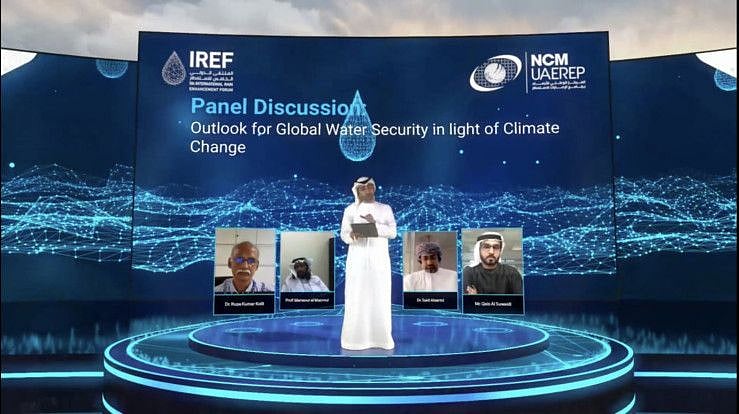Arabian Gulf experiencing longest recorded meteorological drought over last two decades
Climate experts have called for collaborative research, innovation to mitigate effects

Abu Dhabi: The Arabian Gulf has been experiencing the longest recorded meteorological drought over the last two decades, with temperatures in the region being on the rise since 1998, a top climate expert said today.
“The general pattern of the climate in the region is warming. There is warming over the seas and sea surfaces, a rise in maximum temperatures and drying precipitation. In addition, there has been an increase in the number of Category 4 and 5 severe tropical cyclones, which is critical when we look at the economy,” warned Dr Said Alsarmi, meteorological expert at the Gulf Cooperation Council’s (GCC) secretariat.
Also Read
Dubai Police map brainwaves to solve murder mysteryWatch: Dense fog causes low visibility on Abu Dhabi roads, cold weather in Dubai, Sharjah, Ajman and other UAE emiratesAbu Dhabi man ordered to pay Dh30,000 to wife for beating, insulting herHe was speaking at the fifth International Rain Enhancement Forum, which was convened to discuss the climate change and rain enhancement technologies. Organised by the National Centre of Meteorology (NCM), the Forum saw the participation of weather experts and scientists from across the world.
Addressing experts at a panel on the first day of the Forum, Dr Alsarmi and his fellow panellists called for collaborative analysis of the GCC’s atmospheric and weather parameters, rather than separate studies of the data. They also called for the use of innovation to tackle the challenges of climate change, including water scarcity.
Water security
About four billion people across the world are known to currently experience severe water scarcity for at least one month during a year, including almost the entire population of the Middle East. This scarcity is expected to increase due to climate change, decreased precipitation and increased water consumption due to growing populations.
“Water security has attracted significant interest from governments worldwide, as over 40 per cent of the world’s population faces severe water shortages. According to the United Nations’ reports, this percentage is likely to rise to 50 per cent by 2030. As part of its Water Security Strategy 2036, the UAE seeks to ensure sustainable and uninterrupted access to water during normal and extreme emergency conditions alike. To increase precipitation and enhance fresh water supplies in the country, we launched the pioneering UAE Research Programme for Rain Enhancement Science in 2015, yielding promising results, broadly applicable to many arid and semi-arid regions facing scarcity of water resources across the globe,” said Sheikh Mansour Bin Zayed Al Nahyan, UAE Deputy Prime Minister and Minister of Presidential Affairs.
Rain enhancement grants
The NCM, which also launched the UAE Rain Enhancement Programme in 2015, launched the fourth cycle of grants for rain enhancement projects. Project proposals are due by March and winning proposals will be announced in January 2022. They will each receive a total of Dh1.5 million over a three-year period, announced Dr Alya Al Mazroui, director of the UAE Research Programme for Rain Enhancement Science. Till date, the programme has awarded nine international projects and researchers have secured four patents.
Dr Al Mazroui also explained that from the fourth cycle onwards, the programme will become biennial rather than annual, allowing scientists and researchers more time to finalise their project details.
Drought
The climatological community has defined four types of drought. A meteorological drought happens when dry weather patterns dominate an area, as opposed to the low later supply in water bodies that marks a hydrological drought, the impact on crops that marks an agricultural drought and the impact on commodity supply and demand that marks a socio-economic drought
Sign up for the Daily Briefing
Get the latest news and updates straight to your inbox
Network Links
GN StoreDownload our app
© Al Nisr Publishing LLC 2026. All rights reserved.